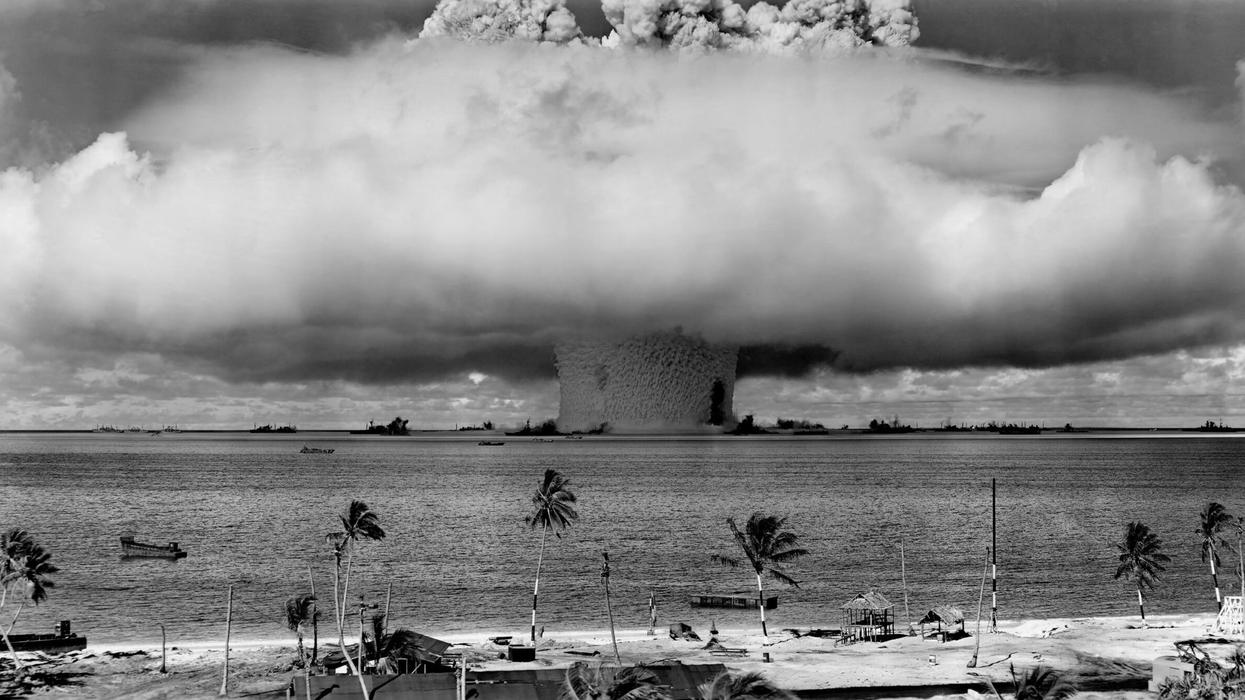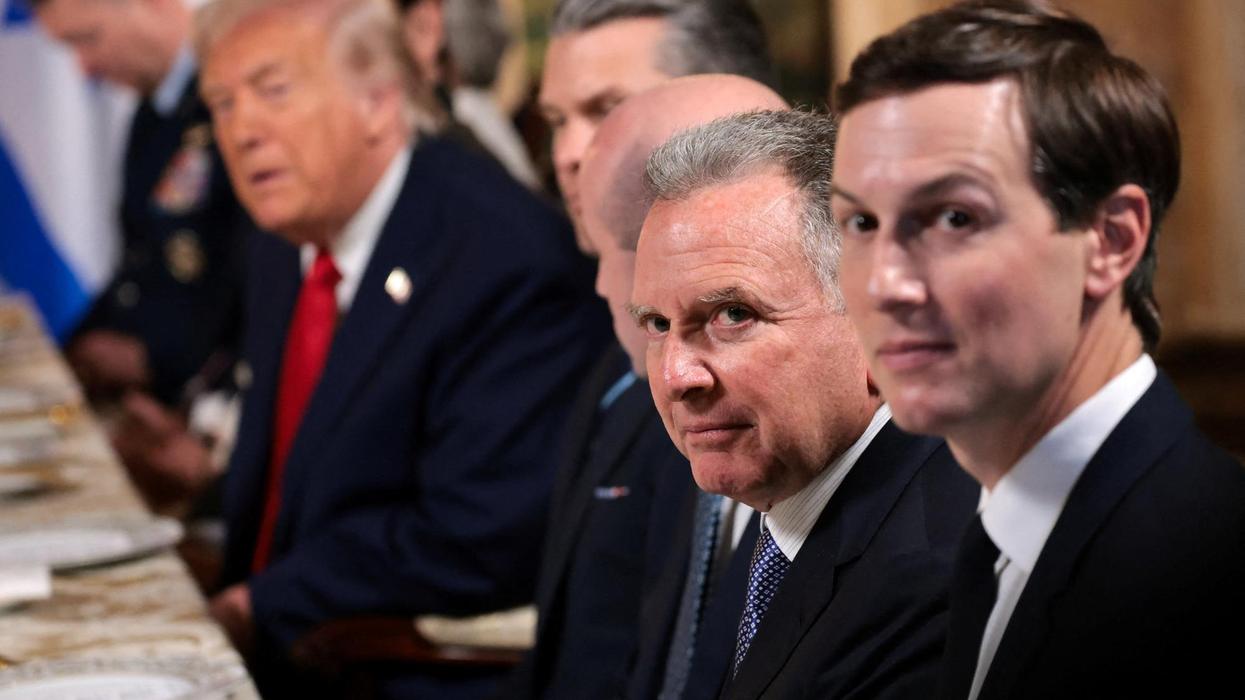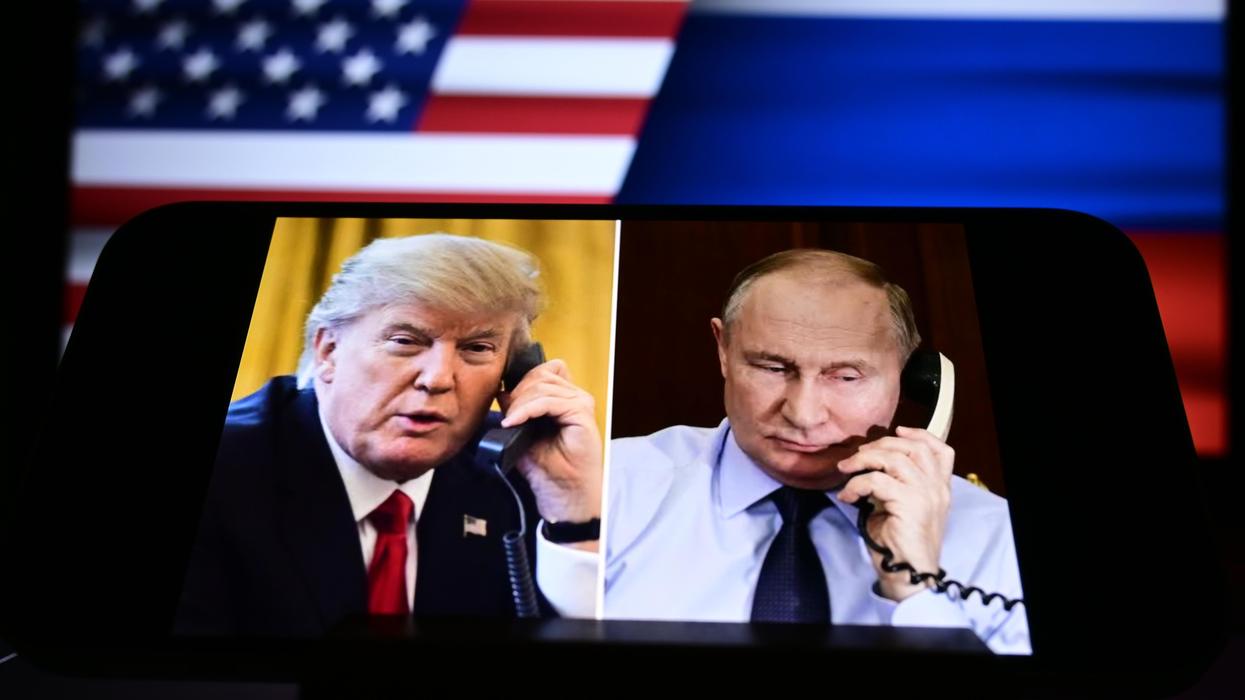Most headlines today will rightfully focus on Donald Trump’s shocking declaration that the United States is going to take over Gaza. America has committed countless mistakes in the Middle East, some of which Trump has been far more willing to acknowledge than other American presidents. But none will be as cataclysmic — and as contrary to U.S. interest — as committing American troops to taking over Gaza while pushing 1.7 million Palestinians from their land into Jordan and Egypt.
Trump’s declaration is an example of a rejection of conventional thinking gone wrong. But only an hour earlier, Trump did it the right way.
While signing a new presidential memorandum calling for maximum pressure sanctions on Iran, Trump poured cold water on it and openly expressed his dissatisfaction with the policy.
“So this is one that I am torn about,” he said during Tuesday’s signing ceremony. “I am signing this, but I am unhappy to do it.”
Yet, this was the least stunning moment of his comments about Iran during a gaggle with journalists in the Oval Office.
Even more remarkable was what he said about the intent — or lack thereof — of decision-makers in Iran.
“There are many people at the top ranks of Iran that do not want to have a nuclear weapon,” he declared.
I cannot recall any U.S. president ever deviating from the quasi-official American line that Tehran is dead set on getting nukes. U.S. officials rarely allow any nuance, or any shades of gray: Iranians always want a nuclear weapon and the only way to stop them from getting one is by preventing them from having access to the necessary material, know-how, or technology. If they have access, they will invariably build a bomb. It’s an unchallengeable certainty.
The 2007 National Intelligence Estimate on Iran caused a major controversy for simply assessing that Iran did not have an active nuclear weapons program, even though it also concluded “with moderate-to-high confidence that Tehran at a minimum is keeping open the option to develop nuclear weapons.”
That is: Iran still wanted a bomb but appeared to have temporarily paused its pursuit of one.
But Trump went beyond that. He shattered one of the most essential assumptions of Washington’s conventional wisdom on Iran by declaring that some decision-makers at the top of the clerical regime do not want a bomb.
Presumably, he is only repeating what the intelligence community has told him. Also presumably, the intelligence community made similar assessments before and shared those with previous presidents. Yet, none of those presidents leveled with the American people regarding this crucial point of nuance. Instead, a black-and-white image of the clerical regime’s desires and motivations has been perpetuated — one that helped cement hawkish and confrontational policies toward Iran while preventing the exploration of a path toward resolving our differences with Iran diplomatically.
Shattering the assumption that Iran wants to build a bomb is particularly problematic for Israeli Prime Minister Benjamin Netanyahu, who claims that Iran’s leaders are irrational and suicidal. Iran constitutes an existential threat to Israel because it seeks Israel’s destruction through a nuclear attack. Because Iranians are irrational and suicidal, in this narrative, they cannot be deterred as they do not care that their own regime and country will be destroyed if they foolishly wage total war on Israel. And because they invariably seek nuclear weapons, the only option, many argue, for Israel and the U.S. is to preemptively bomb Iran. This is what, unsurprisingly, Netanyahu has been advocating for the past 25 years.
Hardly any of these assumptions have ever held up to scrutiny. Iran’s policies may counter vital Israeli interests, and the leadership in Tehran may be incompetent and prone to miscalculations, but they are hardly irrational. Nor are they suicidal, given the brutal lengths they have gone to survive for more than 40 years, despite their evident lack of support among a majority of the Iranian people.
And three former heads of the Mossad — Ephraim Halevi, Tamir Pardo, and Meir Dagan — as well as former Israeli Prime Minister Ehud Barak are all on the record rejecting the idea that Iran constitutes an existential threat to Israel.
And now Trump — just minutes before he received Netanyahu at the White House — shattered the assumption that the clerical regime uniformly seeks nukes.
This adds intrigue to Trump’s half-hearted endorsement of maximum pressure sanctions. He likely knows that the messaging around sanctions, that is, the determination with which the president wants these sanctions implemented, is critical. By pouring cold water on these measures —“Hopefully, we are not going to use [the sanctions] very much” — Trump signals to Tehran, Beijing, and private actors that he is not going to go through hell and high water to implement them.
Rather than over-compliance with sanctions — which Trump sought in his first term — he is opening the door for under-compliance. And by that, Trump is essentially declaring that he is more interested in a deal than crushing Iran’s economy. His implication is that signing the memorandum was something he simply had to do for political reasons.
Tehran should take note. Despite his memorandum, Trump is keeping the door wide open for a major deal. That door won’t be open forever.
And Trump should take note: No deal he makes in the Middle East will make up for the disaster of getting the U.S. military bogged down in Gaza.
- Killing the Iran nuclear deal was one of Trump's biggest failures ›
- Trump signals he may defy hardliners and talk to Iran ›
















